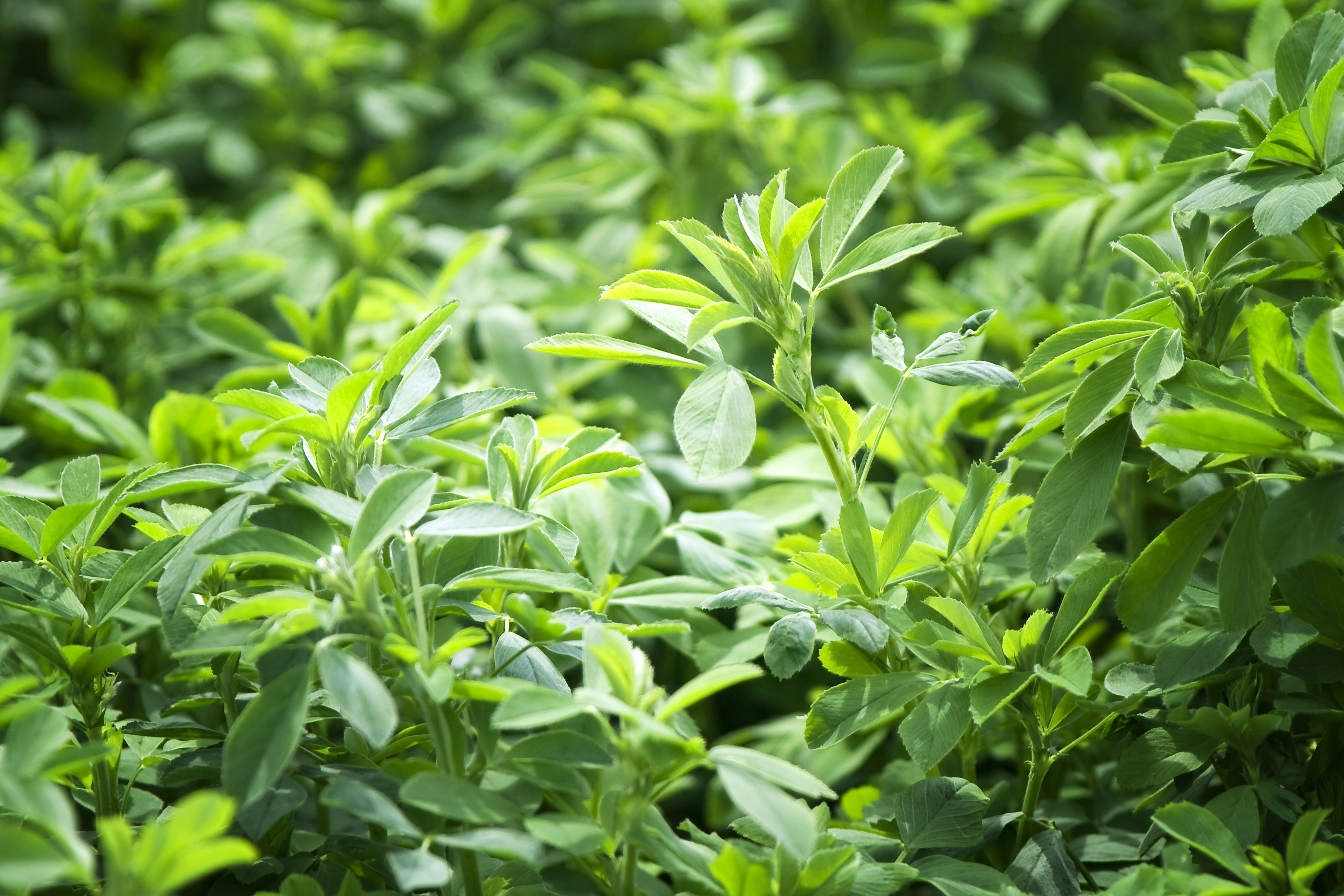Daniel Peterson, CCA, SSp
Field Agronomy Manager
As the order for the potash, phosphate, sulfur, and micronutrients is submitted, what are the reasons, or goals, for applying that fertilizer? Why fertilize alfalfa? Some reasons would likely include increasing or maintaining yield or avoiding “mining” the soil.
There is another reason that AgroLiquid customers are discovering, and it ties in with the industry’s understanding that the digestibility of a ration’s forage component has a large impact on a cow’s milk production. That is why cut timing is carefully managed, weather conditions are closely monitored, weeds and insects are controlled, and the bunks are filled and packed quickly. Recently the dairy industry is also paying more attention to alfalfa fiber digestibility.
For several years dairy customers have been saying that AgroLiquid fertilizers were doing something to their forages that went beyond more tons. They were getting more tons and more milk/cow/day when the AgroLiquid treated alfalfa was fed compared to their conventionally fertilized alfalfa. Then, last year, these personal accounts were put to the test when Poplar Farms Sales and Service near Manitowoc, WI, in cooperation with their Dairyland Seeds representative, decided to split north/south an alfalfa variety plot which was planted east/west. The field split compared conventional dry potash top-dressed against AgroLiquid’s Sure-K applied foliar at 6”. They tested each variety on each treatment for quality and digestibility in addition to dry matter yield. The results were significant, with markedly better Neutral Detergent Fiber Digestibility (NDFD), protein, Relative Feed Quality (RFQ), milk/ton and milk/acre on the Sure-K side. AgroLiquid Field Agronomy Manager for the upper Midwest, Dan Peterson, took note of these results and conducted an additional 11 alfalfa field and test plot trials across Michigan, Wisconsin, and Minnesota during 2016. He discovered the results were indeed repeatable, with all 11 trials showing positive results for the AgroLiquid treatments versus the conventional fertilizer treatments. This level of repeatability is unusual in agronomic testing, and provides strong evidence that AgroLiquid foliar products are doing something unique in the plant, something that other liquid foliar and dry fertilizers are not doing.
The 11 field splits and test plots were across several different conventional dry and foliar treatments and were compared side-by-side to various AgroLiquid foliar treatments. The average of the results across all fields and cuttings showed remarkable results from the AgroLiquid treatments:
- 37.3% more dry matter/acre.
- 2.6 more lbs of milk/cow/day (per NDFD).
- Over 20% faster digestion rate (per the Dynamic NDF kd).
- 5% more protein.
- 40.5% more milk/acre.
The trials were from new seeding through 4th year stands, across different cuttings, soil types, soil fertility levels, and geographies. The AgroLiquid treatments were compared to conventional dry fertilizers, top-dress manure, and competing foliar products. Although the results varied, in every trial the AgroLiquid treatment resulted in a large ROI over the other treatments. In addition, in every trial the AgroLiquid treated side reached maturity between cuttings three to five days quicker than the conventional fertilizer or manure side of the fields. This may allow an additional cutting for the season. Dairy producers who participated in these trials noted not only the faster regrowth but more and larger leaves and less of the typical leaf yellowing below the canopy.
The question is how do AgroLiquid’s plant nutrient products achieve these remarkable tonnage and digestibility improvements in alfalfa? The answer is likely their unique Nutriq TechnologyTM. The flavonol organic polymer facilitates better nutrient uptake and utilization within the plants with less metabolic energy expended. Review the individual alfalfa trials at agroliquid.com/research.


